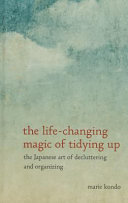

The KonMari Method is the central philosophy of Marie Kondo's approach to decluttering and organizing. This method emphasizes tidying by category rather than by location, which is a significant departure from traditional organizing techniques. Kondo encourages individuals to gather all items of a specific category—such as clothing, books, or kitchenware—into one place before deciding what to keep and what to discard. The key principle here is to only keep items that 'spark joy.' This emotional connection to belongings is crucial in the decision-making process, as it fosters a deeper understanding of what truly matters to the individual. By focusing on joy rather than utility, the KonMari Method helps people to create a living space that reflects their true selves, ultimately leading to a more fulfilling life.
Continue readingKondo presents decluttering not just as a physical act but as a transformative life philosophy. She argues that the process of tidying up can lead to a profound shift in mindset, allowing individuals to reassess their values and priorities. This philosophy extends beyond the act of organizing; it encourages people to reflect on their relationship with possessions and the emotional weight they carry. By letting go of items that no longer serve a purpose or bring joy, individuals can create space for new opportunities, experiences, and relationships. This holistic approach to tidying promotes mindfulness and intentional living, encouraging individuals to curate their environments and lives thoughtfully.
Continue readingA significant aspect of the KonMari Method is the practice of gratitude. Kondo emphasizes the importance of expressing thanks to items before discarding them, as a way to acknowledge their role in one's life. This practice fosters a sense of closure and respect for the past, allowing individuals to move forward without guilt. Gratitude also plays a role in how one interacts with belongings; it encourages a mindset of appreciation rather than accumulation. By cultivating gratitude, individuals can develop a healthier relationship with their possessions, leading to more conscious consumption and a greater appreciation for what they choose to keep.
Continue readingKondo posits that the physical environment significantly impacts mental and emotional well-being. A cluttered space can lead to feelings of stress, anxiety, and overwhelm, while a tidy environment fosters calmness and clarity. The act of tidying is not merely about aesthetics; it is about creating a sanctuary that promotes peace and productivity. By organizing one's space effectively, individuals can enhance their quality of life, improve their focus, and cultivate a more positive mindset. This idea underscores the importance of creating a home that aligns with personal values and supports overall well-being.
Continue readingOne of the critical aspects of the KonMari Method is its emphasis on sustainability. Kondo teaches that tidying is not a one-time event but an ongoing process that requires commitment and mindfulness. Once an individual has completed the initial tidying process, it is essential to maintain the order and organization achieved. This sustainability is rooted in the idea that individuals must continually assess their belongings and be intentional about what they bring into their lives. By adopting this mindset, individuals can prevent clutter from reaccumulating and ensure that their living spaces remain joyful and functional.
Continue readingKondo highlights the psychological benefits of tidying, including reduced stress and increased happiness. The act of decluttering can serve as a therapeutic process, allowing individuals to confront their attachment to possessions and the emotions tied to them. This can lead to greater self-awareness and personal growth. Additionally, a tidy environment can boost productivity and creativity, as it minimizes distractions and promotes focus. The psychological impact of a clutter-free space can be profound, leading to improved mental health and overall life satisfaction.
Continue readingKondo encourages individuals to envision the ideal state of their living spaces before embarking on the tidying journey. This vision serves as a guiding principle throughout the decluttering process and helps individuals stay motivated. By imagining how they want their space to feel and function, individuals can make more informed decisions about what to keep and what to let go. This idea emphasizes the importance of intentionality in creating a living environment that reflects personal values and aspirations, ultimately leading to a more harmonious and joyful life.
Continue readingThe reading time for The Life-changing Magic of Tidying Up depends on the reader's pace. However, this concise book summary covers the 7 key ideas from The Life-changing Magic of Tidying Up, allowing you to quickly understand the main concepts, insights, and practical applications in around 19 min.
The Life-changing Magic of Tidying Up is definitely worth reading. The book covers essential topics including The KonMari Method, Decluttering as a Life Philosophy, The Importance of Gratitude, providing practical insights and actionable advice. Whether you read the full book or our concise summary, The Life-changing Magic of Tidying Up delivers valuable knowledge that can help you improve your understanding and apply these concepts in your personal or professional life.
The Life-changing Magic of Tidying Up was written by Marie Kondo.
If you enjoyed The Life-changing Magic of Tidying Up by Marie Kondo and want to explore similar topics or deepen your understanding, we highly recommend these related book summaries:
These books cover related themes, complementary concepts, and will help you build upon the knowledge gained from The Life-changing Magic of Tidying Up. Each of these summaries provides concise insights that can further enhance your understanding and practical application of the ideas presented in The Life-changing Magic of Tidying Up.